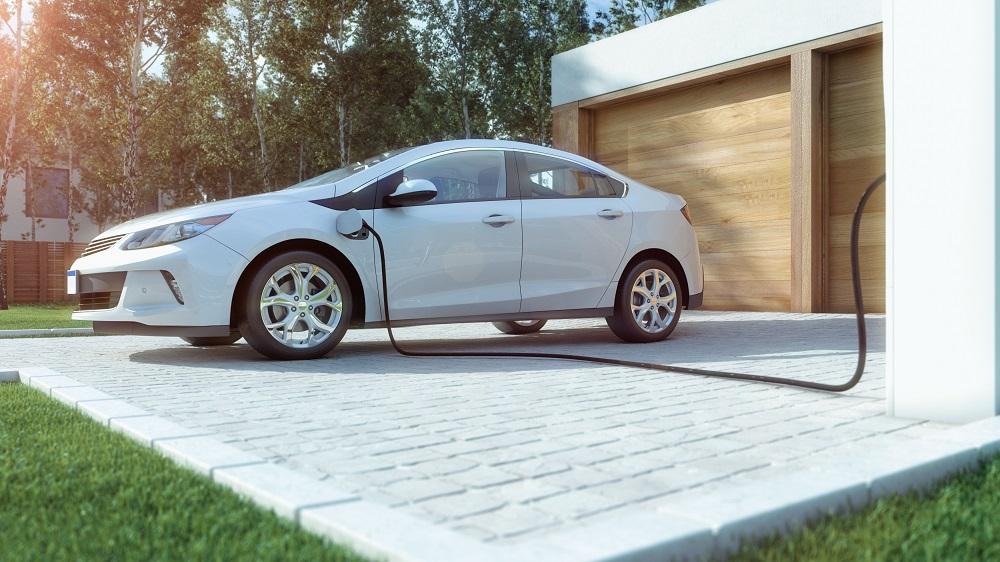
If you’re thinking about purchasing an electric vehicle, it’s important to weigh the pros and cons of electric cars as you make your decision. Here are a few common pros and cons to consider.
Pros
Better for the environment
Obviously, one of the major reasons why consumers buy or consider buying electric or hybrid vehicles is because they’re better for the environment. Because they don’t have a combustion engine or exhaust system, electric vehicles don’t emit the harmful pollutants and gases that conventional vehicles do.
And electric vehicles aren’t just responsible for less air pollution. They’re also significantly quieter than conventional vehicles, meaning they don’t contribute to noise pollution either.
Less expensive fuel
There’s no question: electricity is cheaper to procure than gasoline. Depending on the price of gasoline and the vehicle’s fuel economy, consumers who drive conventional vehicles can pay an average of 15 cents per mile. While this might not seem like a lot of money, it’s a huge spike when compared to the cost of electric vehicles, which can average 5 cents or fewer per mile. Depending on a variety of factors, that difference can mean hundreds, and possibly even thousands, of dollars in savings per year.
Cheaper to maintain
Because electric vehicles don’t require oil to run, they don’t require oil changes or other kinds of regular maintenance related to combustion engines.
Deductible on your taxes
Because of the positive environmental benefits associated with owning an electric vehicle, if you purchase one, you may be eligible for tax credits. The purchase of a new electric vehicle is eligible for a federal tax credit ranging from $2,500 to $7,500, and you may be eligible for additional credits as well.
Save time on your commute
Many cities have special lanes for hybrid and/or high occupancy vehicles, and these lanes are typically less crowded than other lanes, especially at rush traffic times. In your electric vehicle, however, you’ll be speeding past those conventional vehicles.
Safer
Because of the heavy battery pack, which sits below the passenger area, electric vehicles have a significantly lower center of mass and are much less likely than conventional vehicles to rollover. It’s also unlikely for an electric vehicle to explode on impact. Due to the absence of a combustion engine, the frontal crumple zone of an electric vehicle can absorb and direct more kinetic energy than conventional vehicles, which can help keep passengers safe in collisions.
Cons
Not completely emission free
As we’ve discussed before on the Schaefer Autobody blog, the environmental consequences of driving an electric car are influenced by how the electricity you use to charge the car is produced. If the source of your vehicle’s power comes from cleaner energy sources, like wind or solar power, the emissions that are produced to generate the energy required to power your electric vehicle will be slim to none. However, if your electricity comes from more conventional energy sources, emissions are still being produced in order to power your vehicle. (One way to ensure your car runs on clean energy, regardless of the energy mix where you live, is to install solar panels on your garage and use that power to charge your vehicle. Not only is it a clean energy source, it’ll save you money on your electric bill, too!)
Limited range
While electric vehicles continue to improve with every new model, their driving range is still limited. Most vehicles can only travel distances shorter than 100 miles on each full charge, though there are a select few models that can reach distances up to 200 or 300 miles. While 100 miles on a full charge might be more than enough for your typical daily driving, it’s obviously an area of concern for electric vehicle owners when considering a longer trip.
Recharging is time consuming
Refueling is definitely one area in which conventional vehicles win out over electric. While conventional vehicles can take only a few minutes to refuel, most electric car engines require several hours to reach a full charge, and some can take upwards of 15 hours to charge completely. If you’re charging your car every night and/or while you’re at work, this might not be an issue, but it can definitely be an issue while you’re on a longer trip.
Limited charging stations
Regardless of where you live, there’s no question that gas stations are more plentiful than electric charging stations. However, it’s possible that you live in an area where charging stations are plentiful. Still, the question of whether or not a charging station will be available can be a concern for electric vehicle owners when driving out of town or to a new area.
More expensive
As with most nascent technology, the novelty of electric vehicle technology means it’s more expensive to produce, at least for the time being. As such, electric vehicles are typically more expensive to purchase than conventional vehicles. More affordable models can start at $30,000 and range up to $80,000 or more for luxury models. However, with the potential savings outlined above, many electric vehicles to begin to make up for this price disparity over time.
Fewer choices
Again, the novelty of electric vehicles means that there are fewer makes and models available. While most makes offer at least one electric vehicle option, the range of available vehicles is undoubtedly smaller than that of conventional vehicles.

